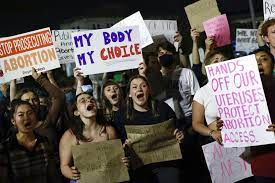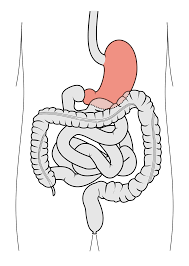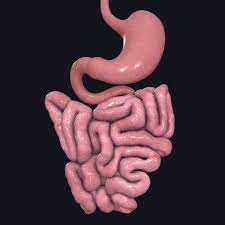The History and Importance of Roe v. Wade
- Sep 10, 2022
- 4 min read
Roe v. Wade, decided by the Supreme Court in 1973, made abortion legal in the United States. The case changed the landscape of American politics and law, but few know the facts behind the decisions or their importance to modern society and law. Let’s take a closer look at Roe v. Wade and its history to see why this decision still matters today, more than 40 years after it was made.

What is Roe v. Wade?
Roe v. Wade is a 1973 Supreme Court case that upheld the constitutional right to an abortion up until viability. It also defined viability as potentially able to live outside the mother's womb, albeit with artificial aid. This gave medical professionals the ability to make decisions for women in terms of her pregnancy. Roe v. Wade also does not prohibit restrictions on abortions after viability except when necessary to protect a woman's life or health. Some other protections offered by Roe v. Wade are: requiring that a woman get counseling before getting an abortion; requiring informed consent; mandating access to information about fetal development, risks, benefits, and alternatives; and mandating access to both public and private funding for abortions.
What does this mean for women?
This landmark decision gave women the right to safe and legal abortions, which will have an important impact on women's lives for generations to come. For example, in Texas alone there are at least 250,000 women who would be negatively impacted if abortion became illegal again. Not only would these women be unable to access abortions themselves; they would also be prevented from supporting their children or other family members who wanted them in times of crisis. These are just a few examples of the ripple effects that repealing Roe v. Wade could have on our society as a whole. It is possible that it might not seem like this ruling will have much of an effect on your life now, but one day you may need to rely on it - whether it's because you're pregnant and don't want to be, or because you're caring for someone else who doesn't want to be. If we allow this ruling to go into effect we could see more than half of all pregnancies end in abortion, with the poor disproportionately affected. Women should stand up now before it is too late.
What can we do now?
First, it is important to take care of ourselves right now: identify your thoughts, emotions, and values surrounding the issue at hand; don't just move on with life because that does not help. Make sure to do your best to balance activism with your own personal boundaries so you don't burn out from trying to be a part of everything all the time. Self-care is very important. You can either give yourself permission to step back for a while or find new ways to get involved in the movement.
As far as what we can do now in terms of activism, there are many things you can participate in without making yourself feel too drained by committing every spare moment. Consider signing petitions like this one from Equality California which seeks to repeal Proposition 8 and enact marriage equality for same-sex couples. You could also call your representatives about legislation pertaining to reproductive rights or use social media outlets like Facebook or Twitter (make sure your privacy settings are on) and write articles or posts about these issues online. You could also get involved in local organizations like Planned Parenthood which provide many opportunities for involvement such as volunteering, donating money, or campaigning for pro-choice candidates during elections.
What does it mean for women?
A woman should be able to decide for herself when she wants to have a child, how many children she wants to have, and under what circumstances she wants to have them. If a woman decides that it is not the right time for her in her life for a child, but later finds out that it may be the perfect time for her family, then she does not want fear being unable to receive the help she needs if Roe is overturned. Planned Parenthood would lose its funding, potentially causing the number of women without access to health care services or even just contraceptives to rise exponentially. The defunding of Planned Parenthood could also cause the maternal mortality rate to rise as well. Maternal mortality rates are already alarmingly high: Black mothers are three times more likely than white mothers to die from pregnancy-related causes, Hispanic mothers are two times more likely than white mothers, and low-income women are at an increased risk as well.
The possible effects of illegal abortions
One of the main reasons that many people support the overturning of Roe v. Wade is the amount of illegal abortions taking place without regulation by doctors or a safe environment to perform it in. There are many potential effects for pregnant people as a result, such as infertility, sexual health complications, maternal mortality, abuse, poverty and difficulty finding a job. We don't know exactly what will happen to women in America if Roe v. Wade is overturned because we've never gone back before so there's no way to compare statistics now with those from before 1973 when it was enacted into law. However it may affect their ability to access health care more broadly like any other citizen so there will be likely some change in the cost for hospitals or clinics that provide reproductive services . The government could also make it difficult for people to get birth control which would then lead to higher rates of unwanted pregnancies. If Roe v. Wade is overturned, abortion won't just become illegal-it'll become dangerous as well-and this fact alone should give anyone pause before they vote on November 6th.



Comments